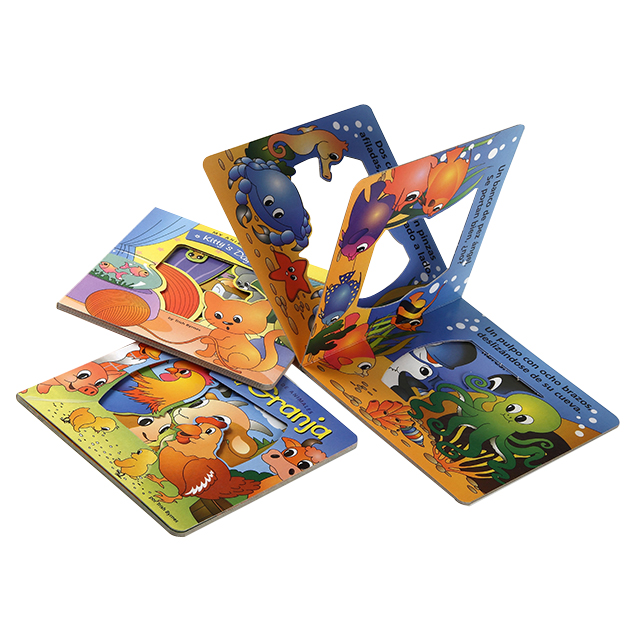
How to effectively cultivate children's reading habits by printing children's books?

How to effectively cultivate children's reading habits by printing children's books?
How to let children grow and transition smoothly, from the initial children's books for learning objects and numbers, to picture books, story books, and then to middle-age and senior-age reading materials, and finally become a person with reading habits. It is us the problem to be solved.
Many parents know that children’s reading is divided into four periods: the flipping period, the picture period, the story period and the text period.
But be sure to pay attention to the division of these 4 periods, not according to age, but to observe specifically what stage of ability your child has developed.
When the child's ability develops to the next stage, it can be judged, because the child will release a lot of signals in behavior.
1. Turn over the book period
Start sign: able to sit up, like to tear and bite books
During this period, the book is a toy for the child, and the concept of the book has not yet been established. For him, the book is like all other things, either for tearing or for biting.
Therefore, at this stage, there are several points to be done:
1) To tolerate children's destructive use of books, and to ensure that the picture books are safe, non-toxic, and very strong and tear-resistant.
2) Through multi-sensory and repeated interaction, let children begin to understand what a book is. A book is something different from other things. It is used to see and can find many things in real life. .
Interact with children more and let them discover by themselves that books are such an interesting thing, and the goal at this stage is achieved.
2. Picture period
Start sign: Stop turning and biting, start paying attention to the screen
The child can sit down completely and start to pay attention to the content of the book. This is a sign that a child has entered the picture period.
At this stage, the most suitable one is the wordless picture book, which provides children with rich details and infinite discovery space.
How do you take your kids to do photo reading?
The most important thing is to cultivate the richness of vocabulary and expression.
You have to take your children to learn things one by one. That's why, a picture book with rich context is better than a picture book, because a high-quality picture book contains more than just an apple or a banana. It's a complete story, with infinite space for imagination and interpretation. The second is to enrich the expression of the child.
3. Story period
Start sign: start paying attention to the story
The signal at this stage is that children begin to reduce their unorganized observations of non-mainline information, begin to be interested in the main line of the story, and begin to pay attention to the pictures and details related to the main line of the story in the process of telling your story.
This means that in another critical period of oral expression and thinking training, children finally start to have the ability to interact with each other in expression.
At this time, be sure to interact with the child by asking questions.
Compared with the previous stage, the questions in this stage put forward higher requirements for children's story understanding, telling, and extended thinking ability.
4. Text period
Start sign: start to be interested in text
When the child slowly discovers the difference in reading between you and him, the child will begin to become interested in words.
When this phenomenon occurs, it will eventually lead the child to an important milestone in reading-independent reading.
Nowadays, society is paying more and more attention to children's enlightenment education, and the children's book printing company and children's book publishing house is booming, because printing children’s books are an important carrier of cultural support. If you need to print children’s book, please do not hesitate to contact us.
Posté Le : 27/10/2021
Posté par : BookPrintingInChina
Ecrit par : BookPrintingChina
Source : https://www.bookprintingchina.com/Blog/how-to-effectively-cultivate-children039s-reading-habits-by-printing-children039s-books